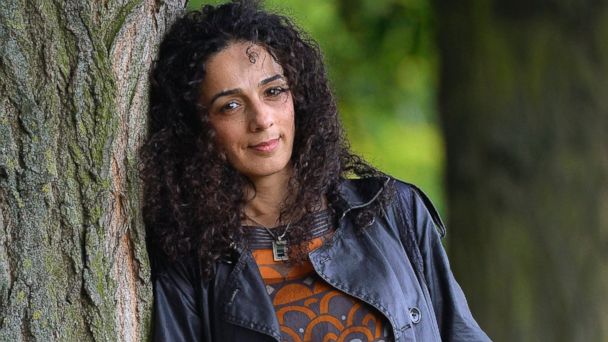
As ABC News previously reported, “Stealthy Freedoms of Iranian Women” is a social platform inviting Iranian women to share photos of themselves without the mandatory hijab. Though Alinejad, who has her own segment on Voice of America’s “OnTen” program, does not endorse banning the hijab, she does advocate a woman’s right to the most basic of freedoms – the freedom to choose, and the freedom to blow your hair in the breeze.
Alinejad is now facing steep criticism from Iranian state television in an attempt to temper her movement. Vahid Yaminpour, a conservative Iranian commentator and TV personality, is alleging that Alinejad was raped on the streets of London by three men as her son was made to stand by as a witness.
“Masih Alinejad is a whore, and not a heretic as some people claim her to be,” Yaminpour wrote on his Facebook page. “We shouldn’t elevate her to the level of a heretic. She’s just trying to compensate her psychological (and probably financial) needs by recruiting young women and sharing her notoriety with younger women who are still not prostitutes.”
Alinejad denied all allegations in an interview with ABC News, citing the comments as a weak attempt by Iranian officials to smear her reputation and quell the explosive activity around her Facebook page, which has now gained more than 450,000 likes.
“They want to keep journalists silent,” she said. “I’ve been attacked several times, but this was the most fabricated, most disgusting news about me.”
Other Facebook pages have also cropped up mocking the “Stealthy Freedoms” movement. Most feature photos of men wearing a hijab, a sign of their opposition to the movement, though in one post, the word “rape” was stamped across the photos of three female Iranian journalists who work abroad and choose to go without a hijab in their broadcasts.
Alinejad said she has mixed feelings about the smear campaign and what it signals.
“In one way, I’m happy because they couldn’t attack those women so they started to attack me. And I’m happy those women are safe,” she said. ”But it’s a tragedy when you sit in your own home and see on the news that people are saying you’ve been raped.”
She added, “It’s hurtful. They see I haven’t done anything wrong, I haven’t even asked them to take off the scarf, I’m just reporting about what exists, and I got attacked by the government. Why? Because I didn’t ignore these women.”
As an Iranian journalist, Alinejad is no stranger to controversy and this is not the first time she’s been faced with this form of criticism. She described the limitations she and her fellow exiled colleagues feel, the inability to do something as simple as express love for a family member over social media, for fear that someone they care about will be attacked in retaliation for an article or a statement.
“In Iran, being an Iranian journalist means that if you always break censorship, break the barrier, you’re going to get attacked,” she said. “It means you have to live in danger all the time.”
Though the reports are inescapable in Iran – seen by Alinejad’s own parents in a village where few other outlets are available – she is still receiving an outpouring of photos and an outcry of support. A separate Facebook page called “We Are All Masih” was created earlier this week and already has more than 2,000 likes. Its patrons are lobbying for an apology from Iranian state TV.
The backlash against her campaign has taken away any hope Alinejad had of returning to Iran, because “if they can rape you in their imagination, they can rape you when they are close to you.”
Still, the choice between going home and reuniting with her family or giving the women she considers to be her sisters a platform weighs heavily on the journalist.
“Do I go back to my country and keep silent, or stay abroad and be louder and louder, to be the voice of those mothers who lost a loved one and do not have any voice inside, and to be the voice of those women who do not believe in a mandatory hijab who need a voice, who need a platform?” she asked.
For Alinejad, there is only one answer.
“If you look at my inbox and read the messages that women send to me,” she said, “they knew the dangers and the risks, but they wanted to send their own message.
“I can’t leave them.”
By Freda Kahen-Kash

No comments:
Post a Comment